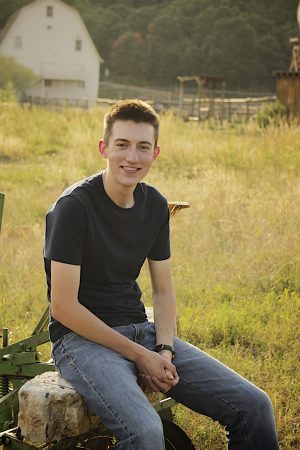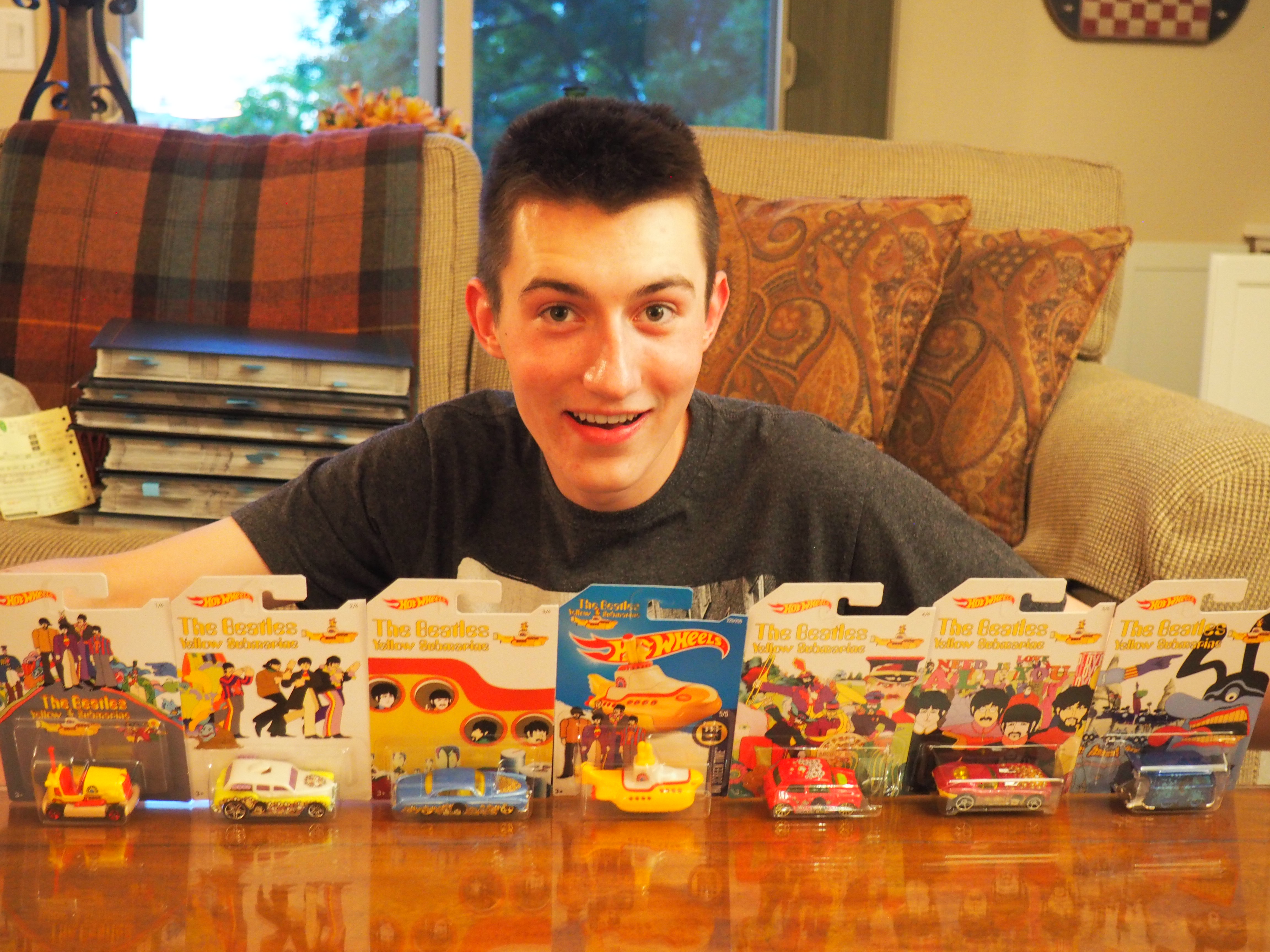Inspiring the community through the creative arts is at the heart of the Fine Arts Center’s mission, and this could not be achieved without the people involved with the FAC, whether through the museum, theatre or Bemis School of Arts. Members of the community make the FAC what it is, and the young people of Colorado Springs who inject their creativity, passion, and artistic flair into the FAC are what make it such a unique place.
The Youth Documentary Academy, housed at the Bemis School of Arts and the FAC, provides media and documentary film training to high school students in under-served communities of Colorado Springs. Students between the ages of 14 and 18 spend seven weeks learning all about documentary filmmaking, producing their own documentaries on whatever issues are important to them. One of the young people who took part this summer is Andy Kwiatkowski, who is just starting to study film and information systems at UCCS this week.
I sat down with Andy the day before he moved into UCCS. We caught up about his current passion for Hot Wheels, the Back to the Future Poster he’s picked up for his dorm room, love of antiques, movies, and his frustrated attempts to get his record player working. My first mention of the Youth Documentary Academy lit him up, and he couldn’t wait to tell me how ‘awesome’ the experience had been.
So, Andy, what made you apply for the Youth Documentary Academy?
Well my film teacher from Rampart High School was one of my favorite teachers. He taught a film class called Electronic Media, which was kind of like a journalism class in which we talked about Rampart news. For assignments, he’d give us film assignments. We had to do a music video and mine was for a song by Rockwell’s, ‘Somebody’s Watching Me’, so I had shots of the cat watching me, people on TV – I basically wanted to capture the feeling that you’re always being watched. And then people loved it because the last bit of the video was the film teacher watching me – people thought that was really funny.
So because I got on so well with my film teacher I persuaded my dad to come and meet him at a parent teacher conference. My dad asked how I could pursue my interest in film further, and the Youth Documentary Academy came into my teacher’s head. He wrote a letter of recommendation for me, and although 45 kids applied, when I walked into the interview Tom Shepherd mentioned that he’d been fascinated by that letter of recommendation. The day I was notified of YDA acceptance, I went into high school and I was so excited, and then it was pretty great to run into him and tell him the news.
I can imagine that he was pretty chuffed! So what did you decide to make your film about?
The film is about dealing with an autistic disorder throughout my school years, and finding it difficult to make friends at school. I do not have autism, but I am on the autistic spectrum so I have some of the behaviors. Like it’s hard for me to socialize, and in my high school I sat alone everyday with no one else to talk to. I would have meltdowns which were like complete body shutdowns in moments of panic and stress when I would be incredibly overwhelmed. Sometimes I would have reactions to simple things – like in high school I had a big problem with people talking crap about the things I liked, like Spongebob SquarePants for example. That’s actually a problem that I’m trying to overcome at the moment. So it was all about my autism, and I have to tell you – it warmed so many hearts.
It sounds like in making such a personal documentary, you must have learned a lot about yourself. How did it feel to put such personal things into a film?
Well it was scary – these thoughts, these things were one of my biggest secrets. So I was worried, I was like ‘What will people think?’ I got really nervous, but then I also thought that giving people some insight into why I am the way I am would make people more comfortable around me, and have a better idea of how they could help.

And how did they react – what did your family and friends say when they watched the preview?
So many people said thank you. One kid, Gabriel, told me that I owned the night because it was so strong and powerful. All throughout making the film I had the question in my mind, ‘What would the audience want to see?’ So I always put myself in the audience’s position to make sure that they’d always be enjoying what was onscreen. My family also were so wowed and so grateful. My dad went up to the editor, Aaron Burns, to say thanks, to say how special it was to hear this stuff about his own son.
It sounds like it was an incredible experience.
It was so amazing because I felt like I was a part of Hollywood! It was great to tell my story. I don’t think many people know about it, so letting more of it out allowed people to appreciate me more.
What about the practical process of making the film? How did you piece it together?
Well everyone’s heard of autism, but what does it actually mean? I started by going to Webster and getting a load of definitions, and then we picked one so that the film starts with a definition and then a lonely shot of me introducing myself. I wanted to film these lonely shots as a powerful beginning in black and white to show how isolated I had been because of this. There was also a funny moment when my editor wanted to film in my room because I just had so much stuff in there. I gained loads of interests so that I could make friends with people, so that I could bring people into my life through these different things. So I had all sorts of interests like 60s and 80s rock, Beatles, and Peanuts memorabilia; Hot Wheels; and automobile and airplane antiques represented in my room. For the credits I played one of my favorite Beatles songs, Help, with some extra footage.
What would you want people watching the film to take away from it?
I want people to appreciate me and to appreciate people who have things like I have. I think I say this in the film, but I want to help them to understand not only me but other people with the disease as well and see what these people can do that you don’t realize.


